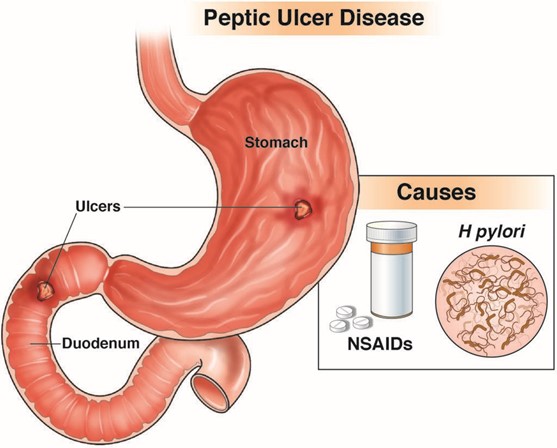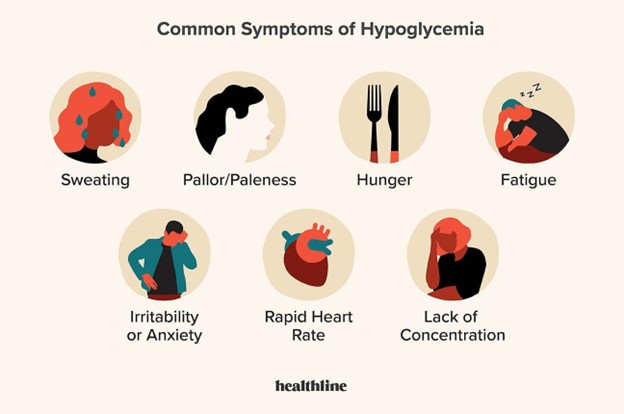A client was admitted in the hospital with peptic ulcer disease tells the nurse about having black tarry stools. Which of the following is the most appropriate nursing action?
Instruct the client to increase fluid intake.
Notify the health care provider.
Advise the client to take iron rich foods.
Document the findings.
The Correct Answer is B
Choice A Reason: Instructing the client to increase fluid intake is not the most appropriate nursing action, as it does not address the cause or severity of the bleeding.
Choice B Reason: Notifying the health care provider is the most appropriate nursing action, as it indicates that the client may have a bleeding ulcer that requires immediate evaluation and treatment.
Choice C Reason: Advising the client to take iron rich foods is not the most appropriate nursing action, as it does not prevent or correct anemia or bleeding.
Choice D Reason: Documenting the findings is not the most appropriate nursing action, as it does not initiate any intervention or outcome.

Nursing Test Bank
Naxlex Comprehensive Predictor Exams
Related Questions
Correct Answer is C
Explanation
Choice A Reason: Applying a transparent dressing to the drain site is not an appropriate action for the nurse to take, as it may trap moisture and bacteria and increase infection risk.
Choice B Reason: Clamping the tubing when the client ambulates is not an appropriate action for the nurse to take, as it may cause bile accumulation and leakage and increase pressure and pain.
Choice C Reason: Placing the client into Fowler's position is an appropriate action for the nurse to take, as it helps to promote drainage and prevent reflux of bile into the liver.
Choice D Reason: Securing the tubing to the client's gown is not an appropriate action for the nurse to take, as it may cause tension and displacement of the drain and increase discomfort and bleeding.
Correct Answer is D
Explanation
Choice A Reason: Anorexia is not a symptom of hypoglycemia, but it may indicate a loss of appetite due to other causes such as nausea, infection, or depression.
Choice B Reason: Warm skin is not a symptom of hypoglycemia, but it may indicate a fever, inflammation, or infection.
Choice C Reason: Fruity breath is not a symptom of hypoglycemia, but it may indicate ketoacidosis, which is a serious complication of hyperglycemia.
Choice D Reason: Nervousness is a symptom of hypoglycemia, as the low blood glucose level affects the brain and causes anxiety, irritability, confusion, and tremors.

Whether you are a student looking to ace your exams or a practicing nurse seeking to enhance your expertise , our nursing education contents will empower you with the confidence and competence to make a difference in the lives of patients and become a respected leader in the healthcare field.
Visit Naxlex, invest in your future and unlock endless possibilities with our unparalleled nursing education contents today
Report Wrong Answer on the Current Question
Do you disagree with the answer? If yes, what is your expected answer? Explain.
Kindly be descriptive with the issue you are facing.
